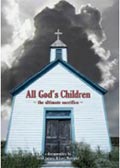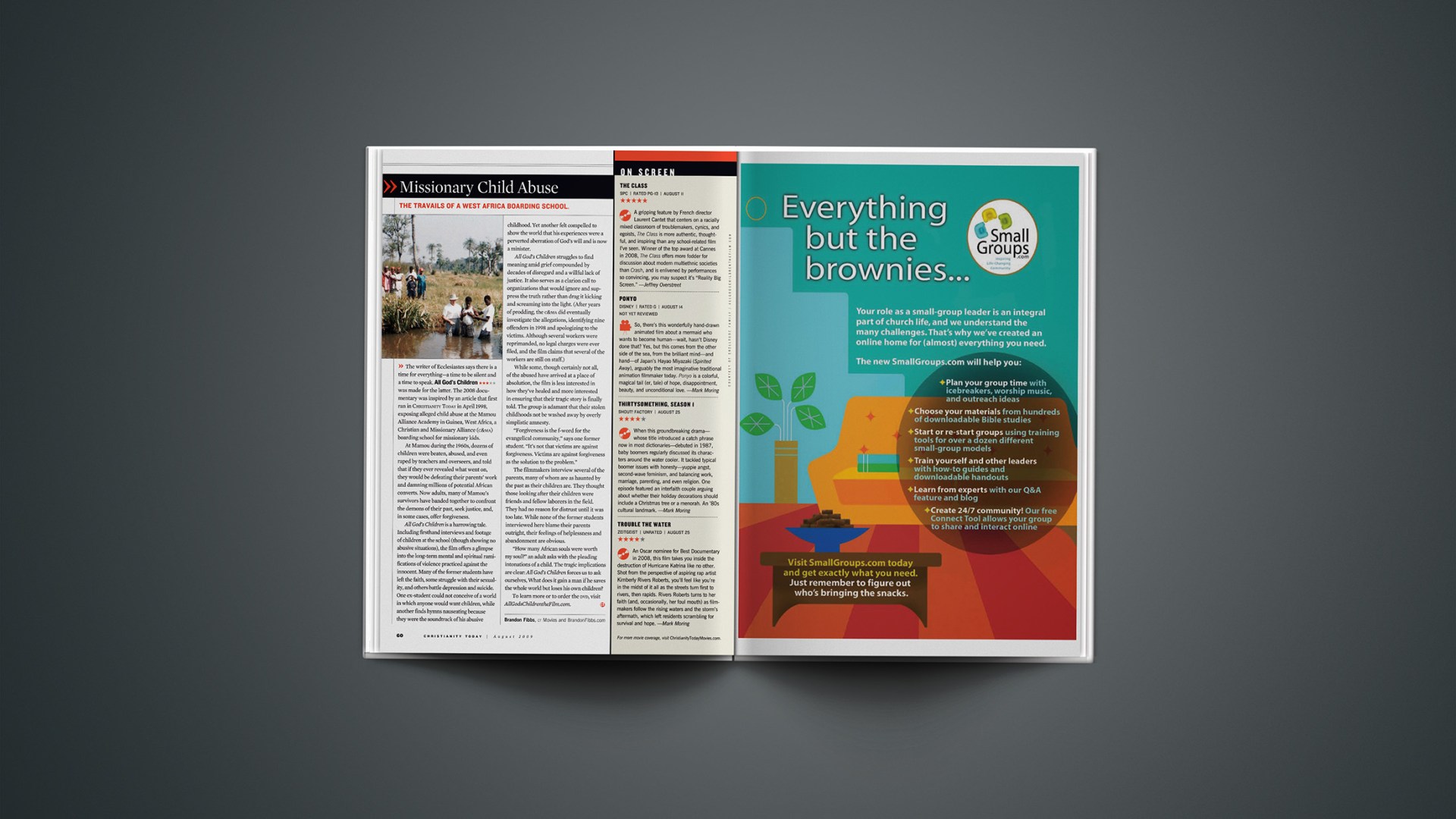 |
All God’s Children Documentary by Scott Solary and Luci Westphal December 2008 70 minutes, $19.99 |
The writer of Ecclesiastes says there is a time for everything—a time to be silent and a time to speak. All God’s Children was made for the latter. The 2008 documentary was inspired by an article that ran in Christianity Today in April 1998, exposing alleged child abuse at the Mamou Alliance Academy in Guinea, West Africa, a Christian and Missionary Alliance (C&MA) boarding school for missionary kids.
At Mamou during the 1960s, dozens of children were beaten, abused, and even raped by teachers and overseers, and told that if they ever revealed what went on, they would be defeating their parents’ work and damning millions of potential African converts. Now adults, many of Mamou’s survivors have banded together to confront the demons of their past, seek justice, and, in some cases, offer forgiveness.
All God’s Children is a harrowing tale. Including firsthand interviews and footage of children at the school (though showing no abusive situations), the film offers a glimpse into the long-term mental and spiritual ramifications of violence practiced against the innocent. Many of the former students have left the faith, some struggle with their sexuality, and others battle depression and suicide. One ex-student could not conceive of a world in which anyone would want children, while another finds hymns nauseating because they were the soundtrack of his abusive childhood. Yet another felt compelled to show the world that his experiences were a perverted aberration of God’s will and is now a minister.
All God’s Children struggles to find meaning amid grief compounded by decades of disregard and a willful lack of justice. It also serves as a clarion call to organizations that would ignore and suppress the truth rather than drag it kicking and screaming into the light. (After years of prodding, the c&ma did eventually investigate the allegations, identifying nine offenders in 1998 and apologizing to the victims. Although several workers were reprimanded, no legal charges were ever filed, and the film claims that several of the workers are still on staff.)
While some, though certainly not all, of the abused have arrived at a place of absolution, the film is less interested in how they’ve healed and more interested in ensuring that their tragic story is finally told. The group is adamant that their stolen childhoods not be washed away by overly simplistic amnesty.
“Forgiveness is the f-word for the evangelical community,” says one former student. “It’s not that victims are against forgiveness. Victims are against forgiveness as the solution to the problem.”
The filmmakers interview several of the parents, many of whom are as haunted by the past as their children are. They thought those looking after their children were friends and fellow laborers in the field. They had no reason for distrust until it was too late. While none of the former students interviewed here blame their parents outright, their feelings of helplessness and abandonment are obvious.
“How many African souls were worth my soul?” an adult asks with the pleading intonations of a child. The tragic implications are clear: All God’s Children forces us to ask ourselves, What does it gain a man if he saves the whole world but loses his own children?
To learn more or to order the DVD, visit AllGodsChildrentheFilm.com.
Brandon Fibbs, CT Movies and BrandonFibbs.com
Copyright © 2009 Christianity Today. Click for reprint information.
Related Elsewhere:
All God’s Children is available at Amazon.com.
Previous Christianity Today articles on the Mamou Alliance Academy include:
Missions: From Trauma to Truth | Once-abused children demand accountability. (April 27, 1998)
Pain Relief | The Christian & Missionary Alliance apologizes to adults abused as missionary kids in Africa. (July 12, 1999)
More information about the film is available at AllGodsChildrentheFilm.com.








